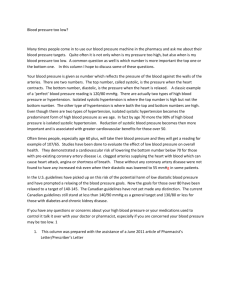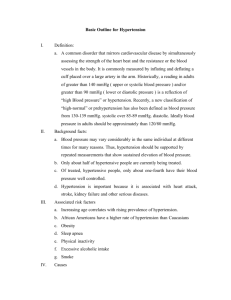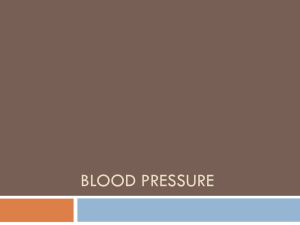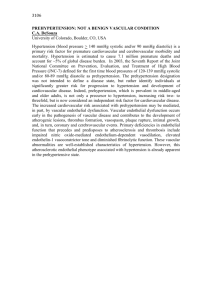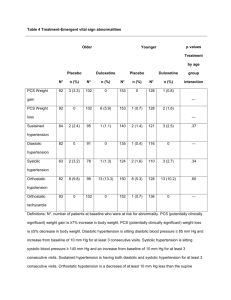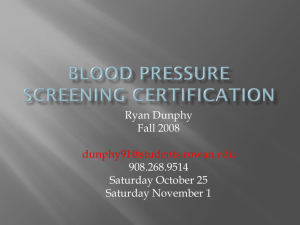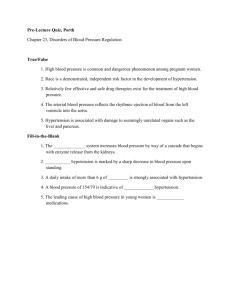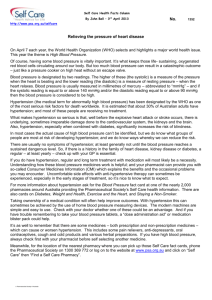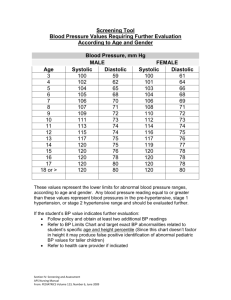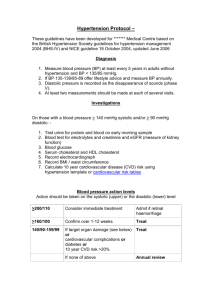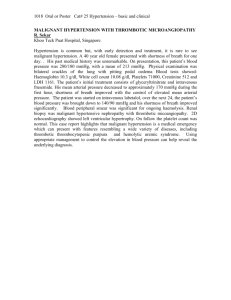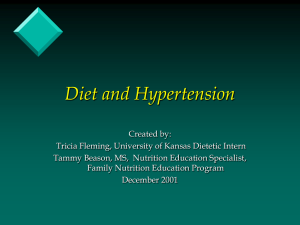BLOOD PRESSURE DEFINED Blood pressure is the amount of
advertisement
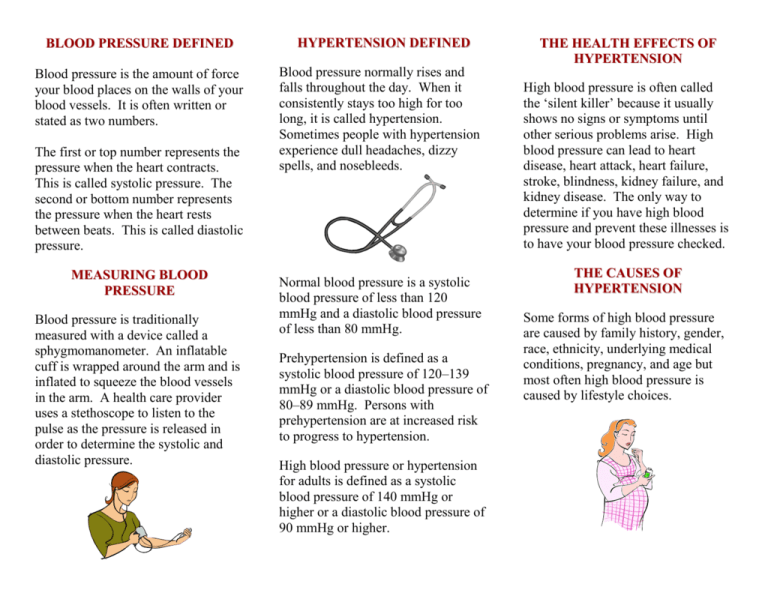
BLOOD PRESSURE DEFINED Blood pressure is the amount of force your blood places on the walls of your blood vessels. It is often written or stated as two numbers. The first or top number represents the pressure when the heart contracts. This is called systolic pressure. The second or bottom number represents the pressure when the heart rests between beats. This is called diastolic pressure. MEASURING BLOOD PRESSURE Blood pressure is traditionally measured with a device called a sphygmomanometer. An inflatable cuff is wrapped around the arm and is inflated to squeeze the blood vessels in the arm. A health care provider uses a stethoscope to listen to the pulse as the pressure is released in order to determine the systolic and diastolic pressure. HYPERTENSION DEFINED Blood pressure normally rises and falls throughout the day. When it consistently stays too high for too long, it is called hypertension. Sometimes people with hypertension experience dull headaches, dizzy spells, and nosebleeds. Normal blood pressure is a systolic blood pressure of less than 120 mmHg and a diastolic blood pressure of less than 80 mmHg. Prehypertension is defined as a systolic blood pressure of 120–139 mmHg or a diastolic blood pressure of 80–89 mmHg. Persons with prehypertension are at increased risk to progress to hypertension. High blood pressure or hypertension for adults is defined as a systolic blood pressure of 140 mmHg or higher or a diastolic blood pressure of 90 mmHg or higher. THE HEALTH EFFECTS OF HYPERTENSION High blood pressure is often called the ‘silent killer’ because it usually shows no signs or symptoms until other serious problems arise. High blood pressure can lead to heart disease, heart attack, heart failure, stroke, blindness, kidney failure, and kidney disease. The only way to determine if you have high blood pressure and prevent these illnesses is to have your blood pressure checked. THE CAUSES OF HYPERTENSION Some forms of high blood pressure are caused by family history, gender, race, ethnicity, underlying medical conditions, pregnancy, and age but most often high blood pressure is caused by lifestyle choices. PREVENTING HYPERTENSION High blood pressure can often be prevented or controlled through lifestyle changes. High blood pressure can be prevented and better managed by: Losing weight if you are overweight. Increasing the amount of exercise you get to three times per week or more. Eating a balanced diet including fruits, vegetables, whole grains, low-fat or fat-free dairy products, and lean meats Reducing your intake of caffeine. Reducing your intake of salt. Relaxing and coping with stress. Quitting smoking. Minimizing alcohol consumption. Seeking out regular medical screenings. Taking blood pressure medication as prescribed by your medical provider. BLOOD PRESSURE RECORD DATE BLOOD PRESSURE / / HYPERTENSION / / / / / / / / / / / / / / / / Fillmore County Public Health 902 Houston Street NW, Suite 2 Preston, MN 55965-0580 507-765-3898 / / / / / / Free Blood Pressure Screening Every Monday from 1 to 3 PM
